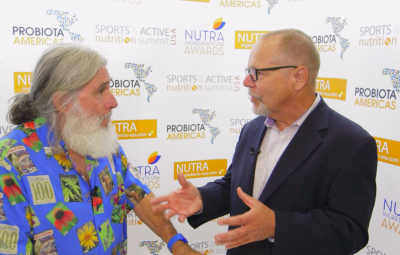Foreign policy and the US political landscape: Where does the natural products industry fit in?
The National Congress of the Chinese Communist Party wrapped up last month and Xi Jinping secured his third term leading the country. So what does this mean for the natural products industry in the US?
“Xi envisions a country that is strong, powerful, much more engaged in global affairs, that will place on the global stage and is a power player. Also, substantial reforms internally, and I think some of these changes will be difficult for the US,” said Loren Israelsen, President of the United Natural Products Alliance.
While many countries have eased COVID restrictions, China continues to enforce lockdowns, mass testing and quarantines, which has hit economic growth and caused significant disruption to businesses. China’s Zero Tolerance Covid-19 policy is a big reason why we didn’t see many Chinese exhibitors at SupplySide West, said Israelsen.
“This is going to have some significant implications. First of all, communication. Just travel back and forth, visiting customers, doing audits, inspections, working with government officials, –that's going to be very difficult to do. I think that we would expect to see US goods perhaps being less popular, but that would be true for Western goods generally. I think that we'll see perhaps a cautionary tone in the business community, looking for signals as to what are the new rules, when do we engage and how do we do that?” Israelsen said.
Looking closer to home, President Biden issued an executive order on advancing biotechnology and biomanufacturing innovation, another move that will impact the natural products industry. For better or worse, Israelsen said that remains to be seen.
“This was an unusually large and expansive executive order, and it envisions a biotechnology-driven country and economy. The vision is kind of breathtaking, actually. It does have implications for the natural products industry because now we're talking about synthetic biology and synthetic ingredients of all kinds. This has applications for healthcare, agriculture, military, literally across the entire US economy…food production and so we're really concerned how this impacts non-GMO and how this will impact organic," said Israelsen.
"If the emphasis is really shifting over to this new biosynthetic approach, that could be a tremendous challenge, possibly a threat to the investment in natural products that are using the methodologies that we have developed carefully over decades. As I read it, it kind of took my breath away. But it's brand new and so there's a lot to be understood and a lot to see. We'll be spending a lot of time watching this and being engaged in whatever this new process is.”
















